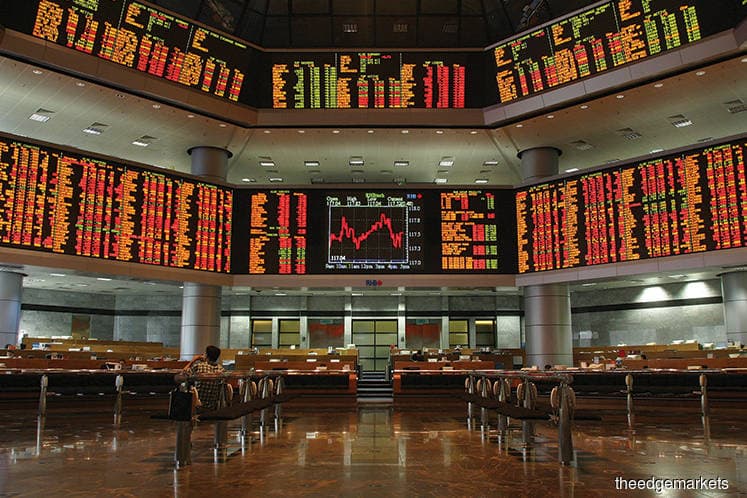
This article first appeared in The Edge Financial Daily on May 31, 2018
Foreign institutions continued to reduce their exposure to the Malaysian equity market on reforms by the new government that may affect a number of government-linked public listed companies. Financial institutions were also major casualties last week after Prime Minister Tun Dr Mahathir Mohamad mentioned that the national debt has reached RM1 trillion. The FBM KLCI fell 3.1% in a week to 1,797.4 points last Friday. The market continued to be strongly bearish this week and the index closed at 1,719.28 points, the lowest level in nearly six months.
The trading volume fell last week as compared with two weeks ago. The average daily trading volume declined to 2.6 billion shares from 4.1 billion two weeks ago and the average daily trading value fell to RM3.2 billion from RM4.3 billion.
In the breakdown of market participants, foreign institutions continued to be net sellers. Net selling from foreign institutions was RM892 million while net buying from local institutions and local retailers were RM470 million and RM422 million respectively.
For the FBM KLCI, gainers pared decliners. Top gainers for the week were Astro Malaysia Holdings Bhd (+3.2% to RM1.60), Westports Holdings Bhd (+3% to RM3.48) and Public Bank Bhd (+2.2% to RM24.92). Top decliners were YTL Corp Bhd (-24.1% to RM1.01), Telekom Malaysia Bhd (-17.8% to RM4.01) and MISC Bhd (-13% to RM5.96).
Global markets’ performances were generally bearish last week. The Malaysian equity market was one of the worst performers. However, the US Dow Jones Industrial Average managed to stay firm.
The US dollar continued to strengthen against major currencies as the US dollar index rose to the highest level in six months at 94.3 points last Friday from 93.7 points the week before. The ringgit was at its lowest in five months last Friday at RM3.98 compared with RM3.97 the week before.
Crude oil prices snapped a six-week gain last week on possible Opec and Russian output boost. Crude oil (Brent) fell 3% in a week to US$76.33 (RM304.56) a barrel. Gold price continued to fall last week. The Commodity Exchange gold price found some support and rebounded to close 0.7% higher at US$1,301.20 an ounce. In the local market, crude palm oil increased marginally to RM2,455 per tonne.
The FBM KLCI fell below the support level at 1,800 points to as low as 1,768 points before rebounding to close near the broken support level last Friday. This indicates that the market was being supported last Friday.
Technically, the trend is bearish in both the short and long term. The FBM KLCI fell below the short-term 30- and 200-day moving averages last week. Furthermore, the index has fallen below the Ichimoku Cloud and the Cloud is also starting to change direction to a bearish one.
Momentum indicators like the Relative Strength Index, moving average convergence divergence indicator and oscillator indicate a strong bearish sentiment. Furthermore, the Bollinger Bands indicator is expanding and the FBM KLCI is trading near the bottom band. However, the indicators also show that the index is starting to be oversold and this may attract bargain hunters.
The bearish trend may find support at 1,710 points but if the index cannot be held above this level, further downside is seen and the next technical support level is at 1,670 points. However, if the market does rebound, we are going to expect the rebound to be greeted by more selling pressure unless the index climbs above 1,790 points.
The above commentary is solely used for educational purposes and is the contributor’s point of view using technical analysis. The commentary should not be construed as investment advice or any form of recommendation. Should you need investment advice, please consult a licensed investment adviser.